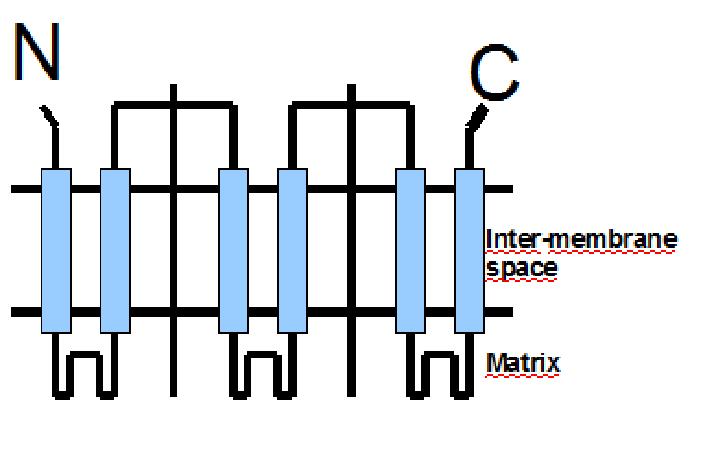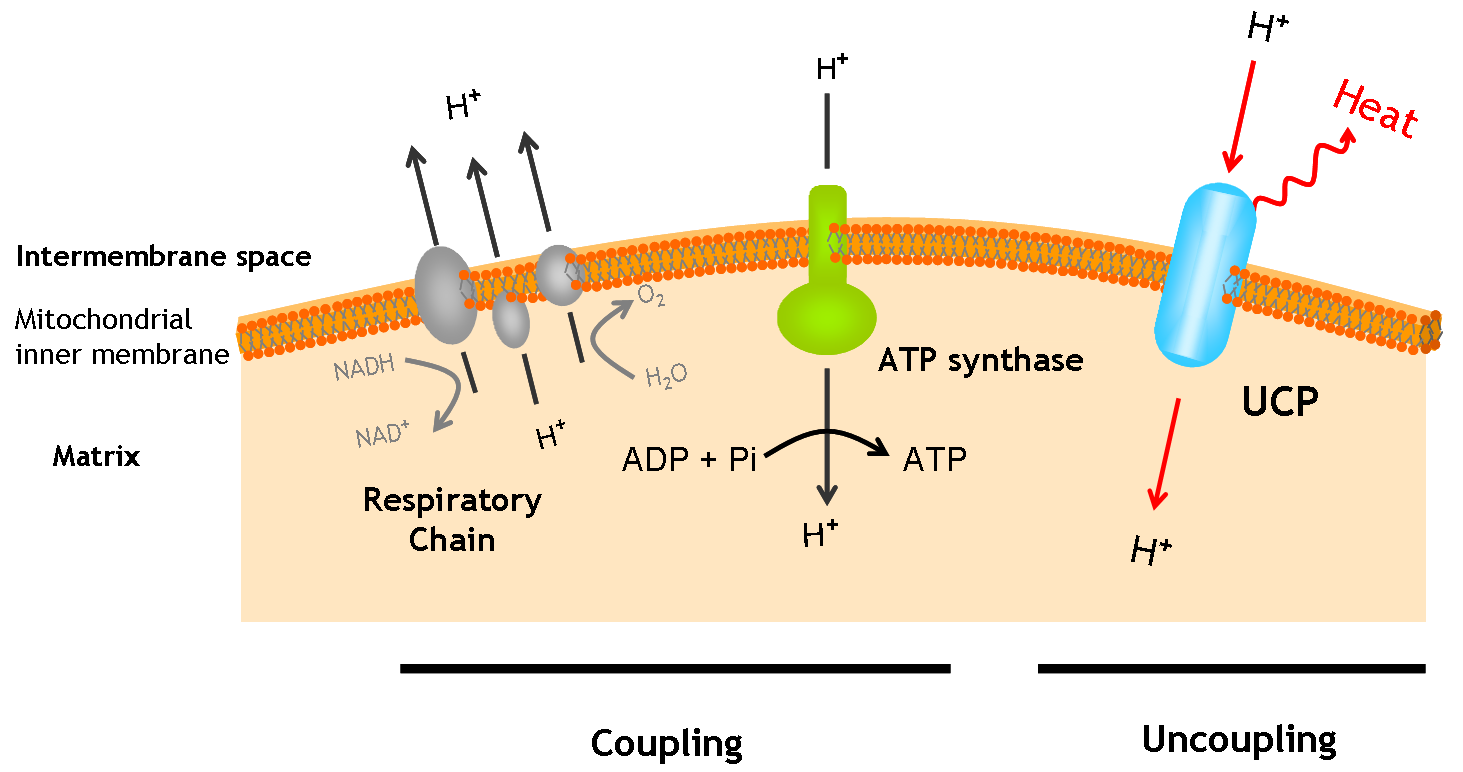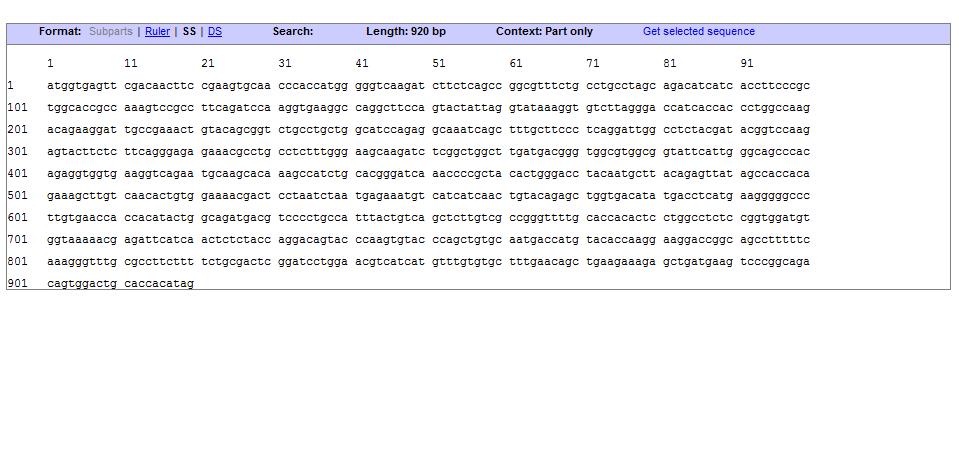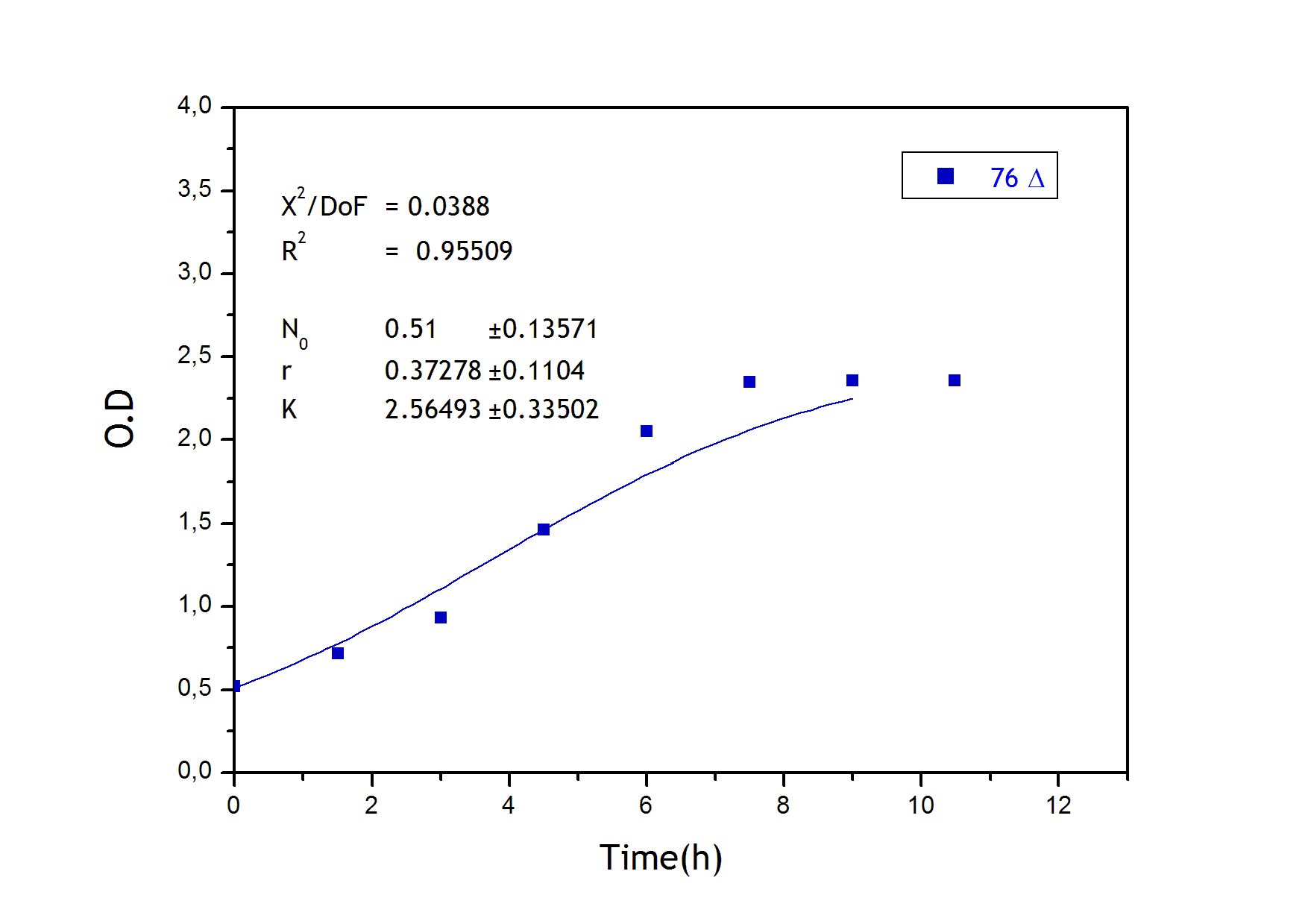Team:Valencia/Parts/UCP175deleted
From 2008.igem.org
(→Sequence:) |
|||
| Line 52: | Line 52: | ||
Strains growth equations: | Strains growth equations: | ||
| - | + | ||
| - | + | [[Image:growthucp76.jpg|center|450px]] | |
| - | + | ||
| - | + | ||
| - | + | ||
| - | + | ||
| - | + | ||
</div> | </div> | ||
</div> | </div> | ||
Revision as of 18:03, 29 October 2008
UCP 175 deleted
The uncoupling protein UCP 175 deleted is a proton carrier which is obtaines from the direct mugenesis of the Ucp1 gene. Ucp 175 has a deletion in the triplet the encodes for the Glycine 175. The mutant shows a generation time and an heat up capacity higher than UCP1. UCP 175 deleted uncouples the respiratory chain of ATP production, converting the metabolic energy in heat. The mutant shows a generation time and an heat up capacity higher than UCP1.
UCP 175 deleted is a 33kd protein. The protein has a tripartite structure. The structure displays an around 100 residues region which is three times repeated. Each part encodes for two transmembrane segments and one long hydrophilic loop.The functional carrier unit is an homodimer.

|
The main difference between UCP 175 deleted and most of the proteins with a nuclear codification is the lack of the importation targeting to the mitochondria in UCP 175 deleted proteins.
The condition that determines the mitochondria as the protein target lays in the first loop which protudes in the mitochondrial matrix.
The second loop of the matrix is essential for the insertion of the protein in the inner mitochondrial matrix.
That protein is without direct regulation and its generation time depends on the inner activity the protein.
Sequence:
Strains growth
Apart from monitoring temperature evolution, we also characterized O.D. variations of each of our strains. We took O.D. measures every one a half hours for nine hours. We carried out this experiment both in Erlenmeyer flasks in the 30ºC shaking stove and in our LCCs. This measurements were useful in order to determine some parameters for our Black Box Model. Besides, we were able to prove that the UCP was indeed being produced even though we could not see the temperature increase. Since our mutant strains Gly175Δ and Gly76Δ do not have the same growing rate as UCP+ when they are expressing the protein, the difference between the results in the strains showed that the reason for our lack of temperature increase was that we had not found the optimum conditions yet. This results made us keep on working until we obtained successful results.
Strains growth equations:
 "
"


